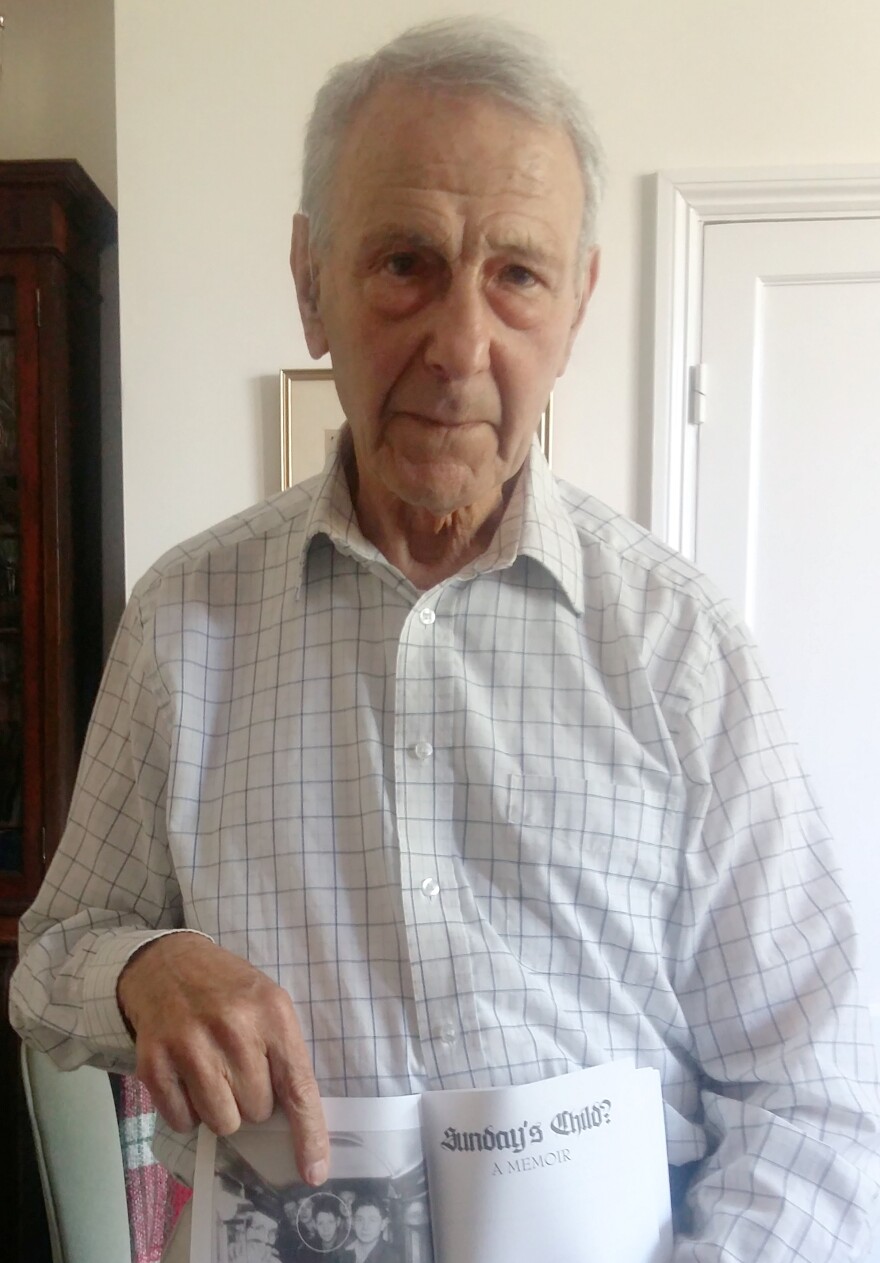In her suburban London row house, Margit Goodman, 94, sits wrapped in blankets in her favorite recliner.
She was a girl of 17 when she first came to Britain, escaping from her native Prague just before the Germans invaded. She remembers the exact date: June 5, 1939.
"When I left, [Czechoslovakia] was still a free country," she recalls. "But we soon became occupied by the Germans."
In the late 1930s, as Nazi persecution of Jews intensified, the British government and Jewish aid groups arranged for the transport of nearly 10,000 children to the U.K. from Europe, through a program that became known as the "Kindertransport."
Goodman was one of the children rescued by the program. "I wouldn't be here now. They saved our lives, didn't they?" she says.
Her mother, father and brother were left behind in Prague. From there, they were deported to concentration camps — where they were gassed to death.
Goodman arrived in London alone. No other close relatives survived.
"I've never seen a photo of my grandparents," says Karen Goodman, Margit's daughter.
Margit Goodman ended up working as a house maid in Scotland. Her experience as a teenage refugee shaped her whole family. She eventually became a social worker, and so did her daughter.
Now both women have become advocates for today's child refugees from Syria.

In November 1938, the British Parliament passed emergency legislation to admit Jewish child refugees from Europe without visas. The Goodmans and a number of former evacuees, now elderly, are lobbying the U.K. to do the same for unaccompanied Syrian children who are in Europe.
Karen Goodman recently briefed members of Britain's Parliament on how the U.K. social services system might absorb 3,000 Syrian youngsters through programs like the one to which her mother says she owes her life.
But Prime Minister David Cameron has said he doesn't want his government to grant asylum to any Syrian refugees who've already traveled to Europe on their own.
"We shouldn't be encouraging people to make this dangerous journey," Cameron told Parliament last week. "I think it's right to stick to the idea we keep investing in the refugee camps and in the neighboring countries."
Cameron's ruling conservatives voted against an immigration bill amendment last month that would have forced his government to bring in 3,000 Syrian child refugees already in Europe.
The amendment was authored by Alfred Dubs, a Labour Party member of the House of Lords who, like Margit Goodman, was born in Prague and came to Britain as a child refugee via Kindertransport.
Dozens of his fellow evacuees have asked Cameron to change his mind. The prime minister has since said he's willing to reconsider and admit some Syrian children, but he wouldn't give a number.
"My survival is entirely due to the extreme generosity of the British government in 1938," says Leslie Brent, 90. "And the contrast with the present government is quite pathetic."
Brent says he's worried Cameron is caving into pressure from right-wing, anti-immigrant groups. His Conservative Party is already split over a possible British exit from the European Union, on which Britons will vote in a national referendum in June. Immigration — or fear of it — is a big part of that debate.
Brent recalls how in the 1930s, anti-Jewish sentiment got so bad in his hometown in northern Germany that he could no longer go to school. So his parents sent him to an orphanage in Berlin. That decision helped save his life.
"The director of the orphanage nominated me to leave on the first Kindertransport, which left Berlin on the first of December 1938 — only a few weeks after Kristallnacht, the night of the broken glass, when Jewish shops and homes and synagogues were ransacked," he says. "My parents had until then really believed that things would change for the better."
They did not. Brent's parents and older sister were shot by the Nazis. Brent attended a Jewish boarding school in Kent and then served in the British army during World War II. He later won a grant to go to university, earned a Ph.D. and became a professor of immunology — contributing to work that won a Nobel Prize in 1960.
"I don't know anyone who came over on one of the Kindertransports who hasn't more than repaid the generosity of Britain in one way or another," he says. "And I have little doubt that these modern refugee children would act in the same way. Everyone thinks of them as a nuisance and a burden."
Brent says he is living proof of how mistaken that belief can be.
Copyright 2021 NPR. To see more, visit https://www.npr.org. 9(MDEwMTk5OTQ0MDEzNDkxMDYyMDQ2MjdiMw004))



